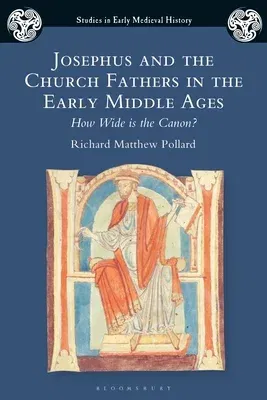In the history of Christianity, the so-called 'Church Fathers' hold an
immensely important place. This title, which we now associate with
figures like St Augustine or St Jerome, was used from the fourth century
onwards to designate particularly trustworthy authorities, whose
opinions became the foundation of Western religious and intellectual
culture. But who exactly were these Church Fathers?
This examines this fundamental questions and considers which authors
constituted the 'Church Fathers', the key religious authorities of the
early Middle Ages, and assesses whether the Jewish historian Flavius
Josephus formed part of this illustrious category. In the process
Richard Matthew Pollard uses a variety of novel techniques: using new
quantitative methods, as well as sensitive qualitative analysis, it
sketches the shape of this shadowy group, and traces how certain figures
join, or leave, this exclusive club. In particular, the book focuses on
the place of Flavius Josephus, an ancient Jewish historian (c. 37-100)
whom some have suggested became a quasi-Church Father. Only by carefully
defining the Church Fathers can we evaluate such claims; in the process,
we learn a great deal more about Josephus' understudied medieval legacy.
Josephus and the Church Fathers in the Early Middle Ages ultimately
enables us to understand and appreciate the foundational authorities of
European Christian culture - some of whom were not Christian at all.

